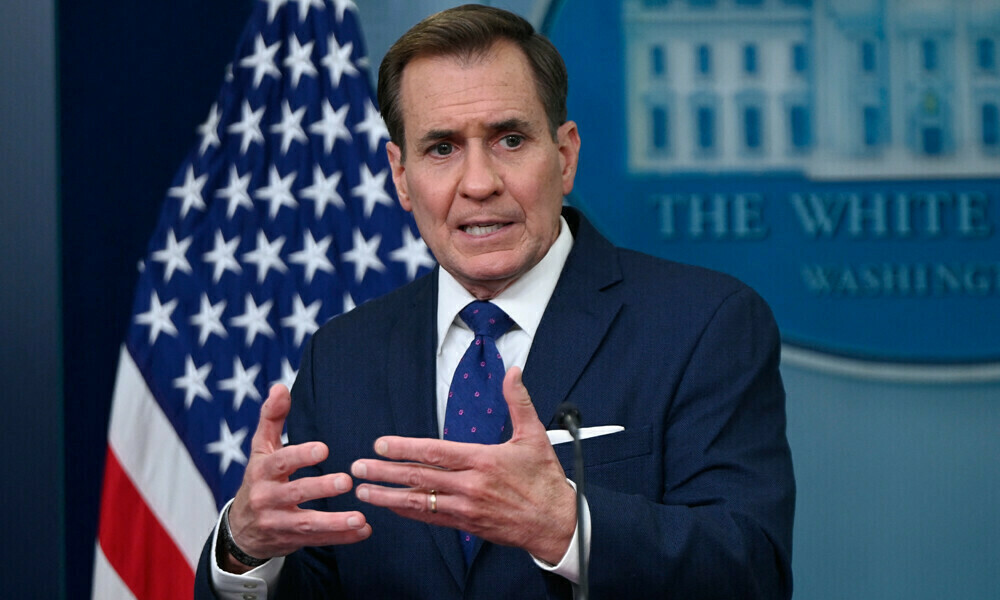In a recent press briefing, John Kirby, the White House National Security Communications Advisor, addressed critical questions regarding the United States‘ stance on Pakistan’s appeal to the global community concerning the ongoing challenges in Afghanistan.
These challenges encompass the regrouping of terrorist organizations such as al-Qaida, IS, Taliban, and TTP.
Kirby’s remarks shed light on the historical and current dynamics of US-Pakistan relations, emphasizing the shared goals of combating terrorism and ensuring regional stability.
Kirby clarified that Pakistan was never a “technical ally” of the United States, as no formal treaty of alliance exists between the two nations.
However, he acknowledged the deep history of collaboration over the past decades. This partnership has been instrumental in addressing the terrorist threats originating from the Afghanistan-Pakistan border region, often referred to as the “spine” of terrorism.
Key points from Kirby’s remarks include:
- Recognition of Pakistan’s sacrifices and the impact of terrorist violence on its people.
- The United States’ unwavering commitment to working with Pakistan to counter common threats.
- Acknowledgment of the challenges posed by terrorist groups operating across the border.
This relationship underscores the strategic importance of cooperation between the US and Pakistan in addressing global and regional security concerns.
The Broader Security Landscape in Afghanistan
The US’s engagement with Afghanistan continues to focus on ensuring that its territory does not become a launchpad for terrorist activities.
This was reinforced by the US’s call for the Taliban to act responsibly and prevent attacks originating from Afghan soil.
In the aftermath of the Taliban’s resurgence, concerns about the regrouping of extremist organizations have intensified.
The US State Department has consistently emphasized the need for the Taliban to adhere to international norms and commitments.
Matthew Miller, US State Department Spokesperson, reiterated the shared interests of the US and Pakistan in combating threats to regional security, highlighting the priority placed on this collaboration in diplomatic engagements.
- The resurgence of groups like al-Qaida and ISIS.
- The Taliban’s role in maintaining territorial control and curbing extremist factions.
- Spillover effects of Afghan instability on neighboring countries, particularly Pakistan.
These challenges necessitate a coordinated international approach to mitigate the risks posed by terrorist organizations.
Pakistan’s strategic location and shared border with Afghanistan make it a critical player in the fight against terrorism.
The Pakistani military and intelligence apparatus have been central to efforts aimed at dismantling terrorist networks.
Impact of Terrorism on Pakistan
The Pakistani populace has borne the brunt of violent extremism, with numerous lives lost and communities displaced.
These challenges are compounded by the cross-border movement of terrorist groups exploiting porous borders.
Key Actions Taken by Pakistan:
- Military Operations: Pakistan has launched extensive military campaigns, such as Operation Zarb-e-Azb and Operation Radd-ul-Fasaad, to eliminate terrorist hideouts.
- Intelligence Sharing: Collaboration with international partners, including the US, has enhanced counter-terrorism efforts.
- Border Management: Strengthened border controls aim to curb the movement of militants and improve security.
The Future of US-Pakistan Collaboration
The United States and Pakistan share a vested interest in regional stability. Continued collaboration on counter-terrorism initiatives and diplomatic engagement can pave the way for a more secure and stable South Asia.
- Enhanced Intelligence Sharing: Greater exchange of intelligence can preempt and neutralize threats.
- Capacity Building: Support for Pakistan’s counter-terrorism capabilities through training and resources.
- Economic Assistance: Addressing underlying socio-economic issues that fuel extremism.
While the US-Pakistan partnership holds promise, several challenges must be addressed to maximize its effectiveness:
- Trust Deficit: Historical mistrust between the two nations necessitates confidence-building measures.
- Geopolitical Dynamics: Balancing relations with other regional powers, such as India and China, influences the scope of collaboration.
- Domestic Pressures: Internal political and economic challenges in Pakistan impact its ability to fully engage in counter-terrorism efforts.


